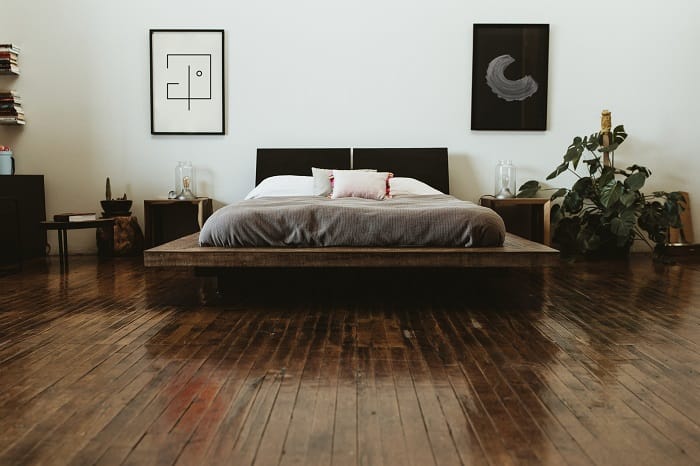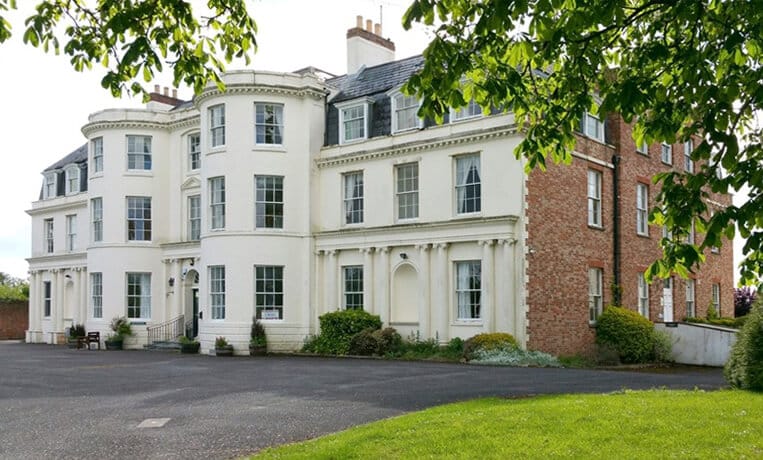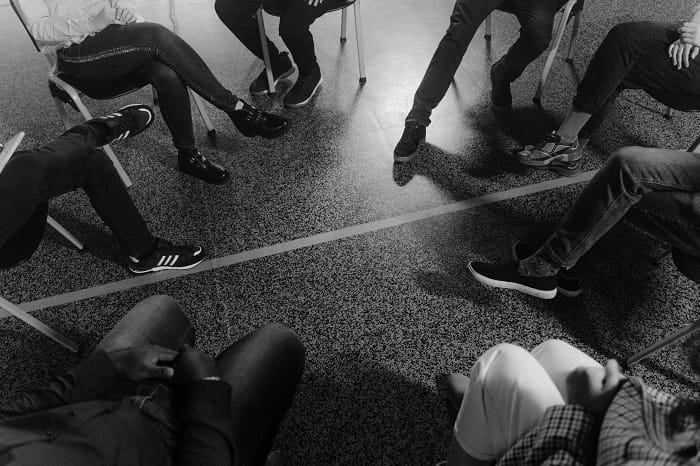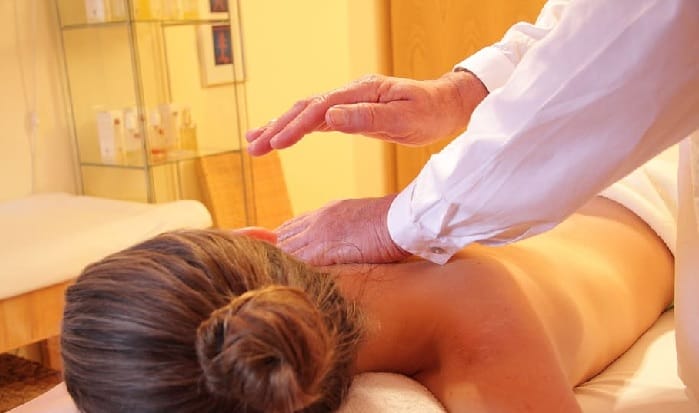Rehab 4 Addiction offers a wide range of physical and psychiatric addiction treatments at a drug and alcohol rehab in Southampton for drug addictions and alcohol addictions in Southampton [1] for those who suffer from substance abuse.
Seeking out rehab treatment is an emotional time for the family of somebody addicted to drugs or alcohol.
Drug and alcohol addiction often induces a psychological dependence as well as a physically addictive dependence, and so treatment at drug and alcohol rehab generally includes a medical detox, and therapy.
Living with an addiction or physical dependence [2] consumes the energy and willpower of those suffering from substance use disorder as well as close family members and friends.
Locating a suitable drug and alcohol rehab treatment provider is also time-consuming and often emotional. Our team is fortunately on hand.
When you make contact Rehab 4 Addiction an advisor will run you through various drug and alcohol rehab treatment options that exist in Southampton and near Southampton.
We generally refer you to several treatment providers in the immediate and wider area. This gives you access to expert drug and alcohol treatment providers and world-class person-centred care without the need to conduct your own research.
Addiction is a major concern in Southampton and across the rest of England, with the following statistics displaying just how much proper drug and alcohol rehab is needed.
To start your recovery journey at a Care Quality Commission (CQC) regulated drug rand alcohol rehab in Southampton today, call our team on 0800 140 4690.

If you are facing a drug or alcohol addiction, or even if you have a tendency for binge drinking [5] and require addiction rehab treatment, you will likely find a drug and alcohol rehabilitation centre in Southampton or near Southampton to suit you and your individual needs.
Almost anyone can benefit from inpatient rehab and it’s important to choose your specific drug or alcohol treatment programme carefully to ensure that it is suitable for you.
Although inpatient rehab is often referenced as the sole option for drug or alcohol addiction recovery, there are many other effective treatments available in Southampton including outpatient rehab programmes and home detoxes.
Many people find success with these methods, while others are more suited to the close monitoring and 24/7 medical assistance that residential rehab provides.
If you are considering attending rehab as an outpatient or completing a home detox programme, read carefully through the below points.
If you can relate to one or more, a residential rehab clinic may be the safest and most effective form of treatment for you.
It’s easy to feel overwhelmed when faced with several rehab treatment options, but our team here at Rehab 4 Addiction are available to help you make an informed decision.
Alcohol abuse can come with a myriad of health including Wet Brain disease (also known as Wernicke Encephalopathy [8]) so you should make sure to get the help you truly deserve today.
To find out if drug rehab and alcohol rehab in Southampton is the right choice for you, call us on 0800 140 4690

Many people entering rehab in Southampton or near Southampton are also dealing with a co-occurring mental health disorder, which can worsen their symptoms and cause their drug or alcohol addiction to spiral out of control.
When these mental health issues [9] are identified and diagnosed alongside drug or alcohol addiction, it is known as a dual diagnosis.
Rehab can treat dual diagnosis with a personalised care plan.
Common mental health conditions associated with drug and alcohol addiction tend to include:
Patients must receive treatment for both their mental health disorder and their drug or alcohol addiction as they can both intensify the other.
Any drug and alcohol rehab in Southampton will offer simultaneous treatment for individuals with a dual diagnosis to increase their chances of long-term recovery.
You can also find general mental health support at Rethink Mental Illness, Papyrus, Young Minds, Samaritans and Mind UK.
For more information about how a drug and alcohol rehab in Southampton will support your mental health, call our expert team on 0800 140 4690

Although drug or alcohol addiction recovery is a lifelong process and the initial ‘period’ of recovery can take anywhere from six months to five years, [10] formal treatment will never last this long.
Many rehab centres in Southampton offer 30, 60 and 90-day programmes for treating drug and alcohol addiction.
It is possible to attend for a shorter amount of time, with some people opting for around seven days to complete medically-supervised detoxification.
However, it is recommended that you attend alcohol rehab for at least 30 days to experience the benefits that come with counselling and various forms of therapy.
While detoxification and withdrawal are great steps on the path to recovery, [11] the progress that you make is more likely to be temporary if you do not address the psychological issues behind your drug or alcohol addiction.
Many substances such as cocaine are primarily psychologically addictive, so simply ridding the body of this substance will do little to prevent the individual from falling back into the same patterns once they leave the rehabilitation centre.
For a specific answer to how long your time at drug and alcohol rehab in Southampton is likely to take, call our team today on 0800 140 4690
 There are a range of drug and alcohol rehab facilities in Southampton and near Southampton to suit a wide variety of budgets and lifestyles.
There are a range of drug and alcohol rehab facilities in Southampton and near Southampton to suit a wide variety of budgets and lifestyles.
If you are struggling with a drug or alcohol addiction and feel that you would benefit from a stay at a rehabilitation centre in Southampton, it’s important to decide on the type of experience that would work best with your budget.
You can choose to sleep in an individual room for the duration of your stay or share with one or more roommates, and this decision will play a large role in the amount that you will pay for drug and alcohol rehab in Southampton.
A 10-day stay in a shared room at drug and alcohol rehab will cost between £2,000 to £4,000, while a single room for the same amount of time comes to between £3,000 to £6,000.
The length of your stay at rehab will also factor into the total price, with a 28-day stay costing anywhere between £6,000 to £12,000.
Alternatively, you can opt for a home detox in Southampton instead of at drug and alcohol rehab, which costs around £1,500.
You should check with a medical professional before selecting this option to see if this would be the right treatment for you, or if residential drug and alcohol rehab would be better.
A home drug detox and alcohol detoxification may not be suitable for people at drug and alcohol rehab with severe substance use disorders or co-occurring mental health issues.
For a personalised psychiatric assessment of the cost of drug and alcohol rehab in Southampton, call our team on 0800 140 4690

Depending on your lifestyle and individual needs, you may be torn between attending a private rehabilitation centre or a council-funded drug and alcohol rehab in Southampton or near Southampton.
This can be a difficult decision, as both have their benefits and drawbacks which are equally important to consider when deciding on drug and alcohol rehab in Southampton.
Private rehab clinics generally have a much quicker and easier admissions process with many patients able to be admitted without a day or two.
Also, each patient is usually assigned their own drug and alcohol rehab counsellor with whom they will remain for the duration of their stay.
There is often a wider range of therapy treatments offered at rehab in Southampton, [12].
Many private drug and alcohol rehab facilities offer holistic treatments such as music, yoga, mindfulness, acupuncture and art therapy, which may suit those with more specific needs.
On the other hand, council-funded rehab is more accessible and affordable than the option of private drug and alcohol rehab, with many patients able to attend for free or at a drastically reduced rate. [13]
Below is a list of alternatives to drug and alcohol rehab, including free and NHS-run addiction treatment services found in Southampton [14] and across the rest of Hampshire:
Address: Cheviot House, 69-73 Castle St, Salisbury SP1 3SP
Telephone: 01722 343 000
Website: http://wellbeing.turning-point.co.uk/swindon-and-wiltshire/
Address: 50, 52 London Rd, Southampton SO15 2AH
Telephone: 023 8071 7171
Website: https://www.changegrowlive.org/drug-alcohol-service-southampton
Address: Bramblys Dr, Basingstoke RG21 8UN
Telephone: 0300 304 0800
Website: https://hampshirecamhs.nhs.uk/
Address: 53 Derby Rd, Southampton SO14 0DJ
Telephone: 023 8038 8580
Website: https://www.facebook.com/WICTSOUTHAMPTON/
Unfortunately, this also comes with long waiting lists [15] and some people in Southampton find themselves waiting months or even years for a spot to open up for drug and alcohol rehab treatment.
While the variety of drug and alcohol rehab therapy treatments [16] may not be as wide, the quality of care is just as high in council-funded clinics as in private drug and alcohol rehab facilities.
There is no right or wrong answer when it comes to choosing between private or publicly-funded drug and alcohol rehab in Southampton.
It’s important to take the time to carefully consider your budget, lifestyle and individual needs before making your decision on drug and alcohol rehab in Southampton.
For guidance in choosing between private or public drug and alcohol rehab in Southampton today, call us today on 0800 140 4690

Attending a specialised alcohol rehab in Southampton or near Southampton is by far the safest and most effective way to withdraw from alcohol.
The vast majority of drug and alcohol rehab centres in Southampton provide 24/7 care and supervision during this time.
Once you have passed through the admissions process at drug and alcohol rehab in Southampton, you will be placed on a strict detoxification programme, during which the amount of alcohol you drink will be gradually lowered.
This will happen over a period of around a week until you are no longer ingesting this substance.
Drug and alcohol rehab can treat withdrawal symptoms like nausea, vomiting, anxiety and seizures.
Health complications of alcohol addiction include:
Alcohol withdrawal symptoms can be deadly, and they have a significant impact on a person’s life expectancy. [24]
This is why it’s so important to get 24-hour medical care at drug and alcohol rehab.
As dangerous as these symptoms are, with the right support they can be properly managed and even potentially reversed. [25]
During the alcohol detox process at drug and alcohol rehab, you may be prescribed medications such as Benzodiazepine to help ease these effects.
The dangers of these symptoms and the help that specialised medication can provide are the reason why quitting alone is rarely recommended [26] and drug and alcohol rehab is often the better place to recover.
Throughout the detoxification process at drug and alcohol rehab, you will be monitored by a medical professional who will also be able to administer medication such as Librium.
This will help to alleviate many of the more unpleasant side effects and prevent you from experiencing seizures.
Over time your dosage of alcohol will be reduced until your body has been completely purged of the substance. Even with these precautions, many people still experience withdrawal symptoms as part of the process.
While the physical aspect of the drug and alcohol rehab recovery process can be intense, it will usually pass within a few days whilst at drug and alcohol rehab.
However, the psychological side of drug and alcohol rehab treatment will usually last for at least three weeks, involving intensive counselling sessions that examine the reasons behind the alcohol addiction and assist you in developing healthy coping strategies.
Addiction therapy at drug and alcohol rehab can also help you to create an effective aftercare plan, as you will be more aware of your potential triggers and the steps that you need to take to avoid reaching for alcohol in the future.
Make the decision to put your recovery in the safe hands of an alcohol rehab in Southampton by calling our team on 0800 140 4690

In many cases, it is possible to detox from alcohol in the comfort of your own home as opposed to attending a drug and alcohol rehab in Southampton or near Southampton.
However, you must meet specific criteria to be eligible for this form of drug and alcohol rehab.
This criterion includes drinking less than 30 units of alcohol each day, [28] having no history of severe withdrawal symptoms such as delirium tremens and no underlying or co-occurring mental or physical health conditions.
Before the drug detox and alcohol phase begins during your alcohol rehab, a psychiatrist will undertake a full psychiatric assessment to ensure that you qualify for this form of treatment.
They may prescribe specific medications to assist you through the withdrawal process, including Librium which can reduce the risk of alcohol seizures and prevent you from experiencing severe anxiety.
You might also be given alcohol medication like Buprenorphine, Acamprosate [29], Naltrexone [30] and a wide variety of anti-anxiety medications such as Paroxetine [31], Nefazodone [32] and their various alternatives. [33]
Throughout the process, the psychiatrist will regularly check in on you via a telephone call to ensure that you remain physically and mentally well throughout your drug and alcohol rehab and recovery process.
Although this alcohol detox takes place at home, all patients are closely monitored.
As alcohol withdrawal can be extremely dangerous, patients are strongly advised against doing so without medical supervision or support from a drug and alcohol rehab. All alcohol home detoxes should be medically supervised by a GP or other addiction specialist.
It also is recommended that anyone detoxing from alcohol at home should also attend regular drug and alcohol rehab counselling sessions to explore the psychological issues behind the addiction and learn healthy coping strategies.
To discover whether a home detox is the right choice for you, or if attending a drug and alcohol rehab would be more suitable, call our team on 0800 140 4690

Drug and alcohol addiction impacts more than just the affected person. Their partners, children, [34] extended family members and other loved ones often witness the devastating effects of this disorder first-hand.
Many people struggle to recognise that they have a drug or alcohol addiction, unable to take the first step towards recovery. [35]
Intervention is where you confront your loved one, express concerns, and offer treatment options like drug and alcohol rehab.
Being gently confronted by a small number of people who care deeply about the individual and hearing their thoughts can often shock the affected person into seeking treatment.
It is recommended that all interventions are run by an experienced professional, often a counsellor or professional drug and alcohol interventionist.
This ensures that the topic does not go off-track [36] and can cool the situation down if things get heated. They can also help you explain how drug and alcohol rehab works and what the benefits are.
Each person should read a short statement expressing their emotions, feelings and experiences with the affected individual.
They should end by asking them to seek help and providing potential treatment options like inpatient drug and alcohol rehab.
An intervention does not guarantee that the individual will seek help, but it can be an effective catalyst.

Just as each person and their addiction are unique, the approach to treating their disorder can range widely. [37]
One of the many benefits of attending drug and alcohol rehab in Southampton is the large variety of therapy treatments that are available at the various drug and alcohol rehab facilities, both for inpatients and outpatients.
Some patients struggle with finding the motivation to recover, [38] in which case motivational interviewing can be highly effective.
Others require guidance in developing healthy coping strategies and improving negative mindsets at drug and alcohol rehab.
Cognitive Behavioural Therapy (CBT) and Dialectical Behavioural Therapy (DBT) are two incredibly popular therapies used at drug and alcohol rehab clinics across the world.
CBT in particular has an extremely high success rate [39] with very low chances of relapse [40], although some individuals will find it less effective [41] due to pre-existing conditions like personality disorders [42] or learning disabilities.
No matter what type of therapy you require, the various drug and alcohol rehab facilities across Southampton will be able to accommodate you and your individual needs.

Relapse is a common and normal part of the recovery journey, with as many as 40% to 60% of people [43] relapsing at some point after their drug or alcohol rehab programme ends.
However, it is not inevitable and several steps can be taken both during drug and alcohol rehab and after re-joining daily life to minimise your chances of relapse [44] and continue with long-term sobriety.
Relapse prevention is a huge part of your drug or alcohol rehab recovery journey – with relapse itself posing a particular danger immediately following you leaving drug and alcohol rehab, [45].
You will be taught a series of relapse prevention techniques before completing your rehab programme.
Completing your drug and alcohol rehab programme until the end is an effective way to set yourself up for continued management of drug or alcohol recovery. [46]
The majority of drug and alcohol rehab programmes in Southampton will help you to create a personalised aftercare plan towards the end of your treatment.
This is a plan of action that will help you to stay on track with your drug or alcohol recovery as you integrate back into daily life, avoid and manage triggers [47] and respond to situations healthily
It will likely take years to develop the mindset and addictive behaviours [48] that brought you to drug and alcohol rehab, so it will likely take many more years to unlearn them and tackle the root causes of your potential trauma and past experiences.
Therefore, attending ongoing counselling sessions will be helpful during your recovery to keep you on track and continuously improve your mental health.
It can be a huge relief to realise that other people have struggled with similar issues, and you may find comfort in the knowledge that you are not alone.
Joining a local drug and alcohol rehab support group in Southampton such as Alcoholics Anonymous (AA) in Southampton, [49] Narcotics Anonymous (NA), [50] Cocaine Anonymous (CA) in Southampton [51] Al-Anon, Alateen or SMART Recovery in Southampton, [52] can help you to meet other people who share your experiences.
You will be able to learn from them while simultaneously sharing your advice and guidance with other drug and alcohol addiction sufferers, potentially boosting your confidence and improving your social skills.
Recovering from a drug or alcohol addiction alone is not impossible, but it can make the journey towards recovery much more difficult.
It is recommended that you find a network of people in Southampton with similar sobriety goals, with who you can discuss your emotions and experiences at drug and alcohol rehab without worrying about being judged or misunderstood.
These may be other members of your group therapy sessions, members of AA or NA that you connect with at meetings, or anyone else who can understand first-hand what you are going through in regard to drug and alcohol addiction.
It’s possible to be triggered by a specific event, person, substance or location years or even decades after completing drug and alcohol rehab, and this can be enough to relapse.
Make sure that you have an arsenal of healthy coping mechanisms available to you so that you can process uncomfortable experiences and emotions without turning to drugs or alcohol.
It can also be helpful to avoid any potential triggers once you leave drug and alcohol rehab, such as walking a different route home to avoid passing by the local pub.
Address: Friends Meeting House, 1A Ordnance Rd, Southampton, SO15 2AZ
Time: Tuesdays at 19:30
Address: Rope Walk Centre, 53 Derby Rd, Southampton, SO14 0DJ
Time: Thursdays at 12:30
Address: Stella Maris Hall, Bugle St, Southampton, SO14 2AH
Time: Mondays at 19:30
Below are some NA meetings in Southampton:
Address: Elizabeth Kelly Community Hall, Edmund Kell Unitarian Church, Bellevue Road, Southampton, Hampshire, SO15 2AY
Time: Sundays at 17:00
Address: Pavilion on the Park, 1 Kingfisher Road, Eastleigh, Hampshire, SO50 9LH
Time: Thursdays at 19:00
Address: Bugle Street Day Centre, 44 Bugle Street, Southampton, Hampshire, SO14 2AH
Time: Fridays at 19:30
For more advice about how to seek additional support after rehab in Southampton, call our team on 0800 140 4690.

If the idea of drug and alcohol rehab in Southampton seems overwhelming, intimidating or out of reach, there are several alternatives.
Drug and alcohol rehab alternatives can be effective at helping you to achieve long-term sobriety without the commitment and expense of an inpatient rehabilitation programme stay.
Local support groups such as Alcoholics Anonymous and Narcotics Anonymous in Southampton can be highly effective at helping you build a strong support system and share your experiences with others, making you feel less alone.
These can also be used in addition to drug and alcohol rehab to supplement your treatment.
Private or NHS Foundation Trust drug and alcohol counselling in Southampton is a great way to develop healthy coping strategies and learn about the psychological reasons behind your drug or alcohol addiction.
12-Step programmes are another way to build relationships and receive guidance and motivation to help you recover on a long-term basis instead of or after rehab.
Outpatient treatment allows you to keep up with your home, childcare and work responsibilities while simultaneously receiving treatment for your substance addiction without having to enter full drug and alcohol rehab.
CBT-based recovery systems such as SMART Recovery are empowering and effective methods that provide the tools required to help yourself recover from a drug or alcohol addiction.
Medically-assisted home detoxes allow you to withdraw from alcohol and other substance safely and in the comfort of your own home.
To learn more about the many effective alternatives to drug and alcohol rehab in Southampton, call our team on 0800 140 4690
Contact Rehab 4 Addiction today for drug rehab and alcohol rehab in Southampton

Call Rehab 4 Addiction today to begin your journey towards sobriety.
Before linking you with a drug and alcohol rehab in Southampton, we will conduct an assessment.
During this assessment, we assess your unique treatment needs, after which we will refer your details to several drug and alcohol rehab providers located throughout the Southampton area.
Call today on 0800 140 4690 or contact us through this website in order to shake your problems with substance abuse.
All of the rehabs we recommend are regulated by the Care Quality Commission [53] (England and Wales) or the Care Inspectorate [54] (Scotland).
Rehab 4 Addiction officers a range of drug and alcohol addiction treatments in Hampshire, including Eastleigh, Basingstoke, Portsmouth, Winchester, Andover, Petersfield, Aldershot, Havant, Fareham, Gosport, Farnborough, Bournemouth, Waterlooville, Fleet and many others.
This article was written by Boris Mackey. You can connect with Boris online at LinkedIn or X.com.
[2] https://nida.nih.gov/publications/drugs-brains-behavior-science-addiction/drug-misuse-addiction
[3] https://www.jci.org/articles/view/18533
[4] https://onlinelibrary.wiley.com/doi/abs/10.1111/j.1360-0443.2007.01871.x
[5]https://www.cdc.gov/alcohol/onlinemedia/infographics/excessive-alcohol-use.html
[6] https://www.nhs.uk/live-well/alcohol-advice/the-risks-of-drinking-too-much/
[8] https://premierneurologycenter.com/blog/neurologic-diseases-associated-with-alcohol-consumption/
[9] https://www.painscale.com/article/the-4-c-s-of-addiction
[10/11] https://www.ncbi.nlm.nih.gov/pmc/articles/PMC6876531/
[12] https://web.archive.org/web/20230315051842/https://pubs.niaaa.nih.gov/publications/arh22-1/61-66.pdf
[13] https://www.racnj.com/the-five-stages-of-addiction-recovery/
[14] https://www.ncbi.nlm.nih.gov/pmc/articles/PMC4553654/
[15] https://www.ncbi.nlm.nih.gov/books/NBK385382/
[17] https://www.nhs.uk/Live-well/addiction-support/drug-addiction-getting-help/
[20] https://www.cdc.gov/alcohol/fact-sheets/womens-health.htm
[22] https://www.cdc.gov/alcohol/fact-sheets/alcohol-use.htm
[23] https://www.cdc.gov/alcohol/fact-sheets/alcohol-use.htm
[24] https://www.niaaa.nih.gov/publications/alcohol-and-brain-overview
[26] https://pubs.niaaa.nih.gov/publications/aa22.htm
[27] https://www.ncbi.nlm.nih.gov/pmc/articles/PMC4402015/
[30] https://www.niaaa.nih.gov/publications/brochures-and-fact-sheets/understanding-alcohol-use-disorder
[31] https://www.niaaa.nih.gov/alcohol-health/overview-alcohol-consumption/moderate-binge-drinking
[32] https://effectivehealthcare.ahrq.gov/products/alcohol-misuse-drug-therapy/consumer
[33] https://www.aafp.org/pubs/afp/issues/2016/0315/p457.html
[34] https://www.ncbi.nlm.nih.gov/pmc/articles/PMC5614930/
[35] https://agapetc.com/what-is-the-best-antidepressant-for-an-alcoholic/
[36] https://www.rehab4addiction.co.uk/addiction-treatment/naltrexone-implant
[38] https://www.mountsinai.org/health-library/selfcare-instructions/deciding-to-quit-drinking-alcohol
[39] https://www.ahrq.gov/prevention/guidelines/tobacco/5steps.html
[41] https://www.ncbi.nlm.nih.gov/pmc/articles/PMC6760428/
[42] https://gpsych.bmj.com/content/32/5/e100087
[43] https://pubmed.ncbi.nlm.nih.gov/32954958/
[44] https://www.ncbi.nlm.nih.gov/pmc/articles/PMC7001356/
[45] https://www.ncbi.nlm.nih.gov/pmc/articles/PMC6241194/
[45] https://www.tpoftampa.com/how-common-is-relapse-after-rehab-and-how-can-it-be-avoided/
[46] https://www.ncbi.nlm.nih.gov/pmc/articles/PMC4553654/
[47] https://rivierarecovery.com/the-wall-stage-of-recovery/
[48] https://nida.nih.gov/publications/drugs-brains-behavior-science-addiction/treatment-recovery
[49] https://drpeeke.com/2015/02/24/pillars-of-recovery-the-three-ms/
[50] https://www.ncbi.nlm.nih.gov/pmc/articles/PMC3654310/
[51] https://www.alcoholics-anonymous.org.uk/
[52] https://meetings.ukna.org/meeting/Southampton
[53] https://meetings.cocaineanonymous.org.uk/Southampton
[54] https://uk.meetings.smartrecovery.org/Southampton
[56] https://www.careinspectorate.com/index.php/inspection-reports
 Substance addiction, also referred to as Substance Use Disorder (SUD), is a chronic and relapsing brain disease that affects both physical and psychological functioning. It develops when repeated exposure to drugs or alcohol alters brain chemistry, particularly the reward and motivation systems, leading to compulsive substance use despite harmful c .... Read More
Substance addiction, also referred to as Substance Use Disorder (SUD), is a chronic and relapsing brain disease that affects both physical and psychological functioning. It develops when repeated exposure to drugs or alcohol alters brain chemistry, particularly the reward and motivation systems, leading to compulsive substance use despite harmful c .... Read More
 Addiction recovery is a deeply personal and individual journey. The decision to seek help for your drug or alcohol addiction and rebuild your life generally happens quietly, sometimes after years of struggle. But while recovery starts at an individual level, it’s rarely successful in isolation. Behind most long-term recovery stories is a time whe .... Read More
Addiction recovery is a deeply personal and individual journey. The decision to seek help for your drug or alcohol addiction and rebuild your life generally happens quietly, sometimes after years of struggle. But while recovery starts at an individual level, it’s rarely successful in isolation. Behind most long-term recovery stories is a time whe .... Read More